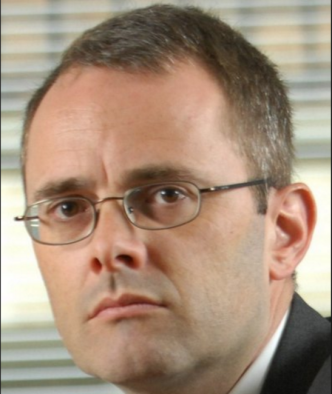
Failure to capitalise on commercial opportunities and frequent changes of direction were behind the closure of Exaro News, according to its founding editor.
The bold attempt to create a commercial news agency based purely on investigative journalism ended in failure last week as it closed just under five years after launching.
Exaro’s tagline was “holding power to account”. But despite some editorial successes, last year it is understood to have lost £400,000 for its owners.
Exaro tried various commercial models: a paywall, registered access, display advertising, selling its content to other publishers and selling data. But all ultimately failed.
Mark Watts, who was dismissed as editor-in-chief last month after five years at the investigative news agency, also said budget cuts had “pulled the rug” on deals that could have proven lucrative.
But he largely dismissed the idea that the agency’s VIP paedophile ring story, which resulted in a failed police investigation called Operation Midland, was responsible for the closure.
Exaro shut its doors for the last time on Wednesday last week, days after newly appointed head of news David Hencke had declared it “open for business”.
Watts told Press Gazette: “There has been constant reversal of direction on the commercial strategy and I think an example of that has been demonstrated in its closing stages: open for business one day then a couple of days later it’s doing precisely the opposite.
“I’ve been having to deal with this constant reversal of direction for five years. ”
He said there was “nothing happening” commercially in Exaro within the first two years and that there were then “constant changes in direction”.
Paywall failure
A paywall put up in 2012, a year after Exaro was founded, was taken down a year later.
Watts said the agency had been relying on “tie-ups”, selling content to other titles, as its main source of revenue.
He said the company had also tried to invest in “add-on data services”, with the Exaro Insolvency Index set up to sell data on bankruptcies to private clients, but that the commercial team “couldn’t make it work”.
He added: “Journalists started spending some of their time selling it, and successfully. They started getting people to subscribe to it.
“We were demonstrating that it could be sold, we just needed the right person to do it. But commercial soon pulled the plug and it was closed down.
“Nothing really replaced that as a strategy for raising revenue apart from carrying on doing the editorial tie-ups.”
![]()
 Watts said, the timin
Watts said, the timin![]() g of cuts in 2013, which halved the number of editorial staff from ten full-time equivalents to five, scuppered a pending retainer deal giving first refusal on stories to a mainstream media outlet.
g of cuts in 2013, which halved the number of editorial staff from ten full-time equivalents to five, scuppered a pending retainer deal giving first refusal on stories to a mainstream media outlet.
“That would have made a significant revenue stream for us but when fresh cuts were announced it completely pulled the rug out from under the deal,” he said.
“It wouldn’t have paid all our bills but we could have built on it. It wasn’t the silver bullet that would save us but it isn’t about one silver bullet, it’s about several and that would have been one of them.”
Display advertising
Exaro’s growing profile from its investigations saw the company look at digital display advertising as a potential primary revenue source earlier this year.
“The view was taken that the level of traffic [to the website] was such that we really could be doing something significant in terms of advertising,” said Watts. “This was another reversal of direction.”
He said the firm’s managing director had been tasked with redeveloping the website platform, to enable it to be a vehicle to sell advertising, at the start of the year and had been due to report back.
“The next thing we are being called to a meeting to say that the editor is being made redundant,” said Watts, who faced redundancy before being dismissed from his role in June, which he is in the process of appealing.
“I think a lack of direction was the real issue for a group that was under financial pressure,” he said. “I think that was the thing that really did it.”
He added: “Even though Exaro folded I think we really saw how it could be done, which is one of the big frustrations.
“I’ve always thought that it isn’t one thing, but has to be many things. Retainers and add-on data services were just part of it.
“It showed that there was potential. Not just theoretical ideas but actual demonstrations of how we could sell the Exaro Insolvency Index to commercial clients, actual negotiations on retainer deals.”
According to Watts Exaro suffered losses in the order of £400,000 last year. It never lost a lawsuit, he said, but was hit for £27,000 in legal fees after one unsuccessful claimant couldn’t afford to cover them.
Despite Exaro’s closure, Watts paid tribute to its owner, investment fund manager Jerome Booth, for “funding it as long as he did” under his New Sparta company.
“Although there was a failure to exploit commercial opportunities, it doesn’t take away from the fact that he made an enormous commitment that enabled some fantastic journalism over five years,” said Watts.
Paedophiles
Of the VIP paedophile ring story that alleged a cover-up of sexual abuse and multiple murders at the heart of Westminster, Watts described the reporting as “absolutely terrific” and said he expected it to be “vindicated”.
“I have no doubt that as time goes on, if it’s not clear enough for people already, it will become even clearer,” he said.
As to whether the controversy had been enough to tarnish the agency’s reputation and perhaps force Booth into shutting up shop, he said: “I think any investigative story is going to attract controversy and people will jump on anything they can to back up their stand point.
“When Midland was closed that was used as a stick to beat us with. Clearly there was a lot of pressure, very publicly. There was a lot of pressure on the police to close Operations Midland and pressure on us all around.
“What influence that had on Jerome you would have to ask him.”
Press Gazette has requested a comment from New Sparta but is yet to receive a reply.
Exaro’s hits:
- David Hencke was named Political Journalist of the Year at the 2012 British Journalism Awards for a major investigation into how senior civil servants were avoiding paying income tax.
- In 2013 it published a secret recording of Rupert Murdoch speaking to candidly to journalists and admitting knowledge of payments to police.
- In 2014 it persuaded more than 50 MPs to back its campaign for an inquiry into organised child sex abuse, fuelled by its reporting of claims senior political figures were involved.
- Earlier this year it published details of a leaked draft of the BBC report into the Jimmy Savile scandal.
Email pged@pressgazette.co.uk to point out mistakes, provide story tips or send in a letter for publication on our "Letters Page" blog
